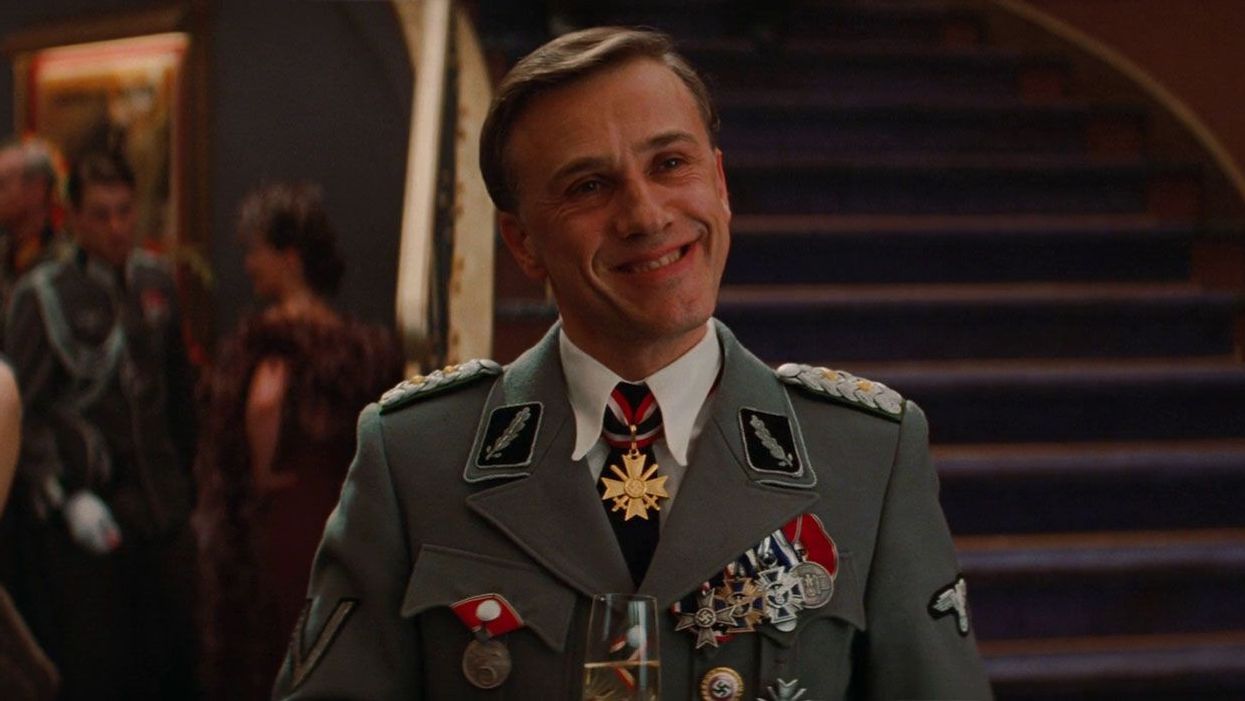What Made Hans Landa One of the Greatest Villains of All Time?
Tarantino knows how to write a villain.

From the first scene in Inglourious Basterds, I think we all understood we had an all-time villain in Hans Landa. He was Quentin Tarantino's Nazi hunter, a title that already makes him one of the worst people ever. But his bubbly personality and dark sense of humor, coupled with his conversational tendencies, were so unexpected.
Hans Landa was played by Christoph Waltz. Waltz would go on to win the Academy Award for his performance in the movie, and he deserved it.
There's so much we can learn from the writing and even the acting choices in this movie. If you want to crack a villain and make them stand out in your work, this is someone you should watch, and these are choices you can emulate.
Check out this video from Nerdstalgic, and let's talk after.
What Makes Hans Landa One Of The Most Terrifying Villains in Film Historywww.youtube.com
What Made Hans Landa One of the Greatest Villains of All Time?
It would be hard to pick a favorite Tarantino movie, but Inglourious Basterds is near the top for me. I think it's a perfectly crafted screenplay with maybe the best villain in modern film.
Hans Landa has everything going for him; clear goals, a distinct personality, and an agenda so evil he doesn't mind screwing over fellow Nazis to get it. What makes him so evil is that nothing can get in his way. He is a survivor, and will outwit, outplay, and outlast everyone in order to ensure his personal victory.
So how can you emulate a character like that?
Frequently, newbie writers hear advice and all they take away from the task is, "Write a Nazi."
Actually, what you should be thinking is, "How do I write the essence of evil?"
See, if you distill Landa down to his evilness, you actually get the theme of the movie. Landa is selfish. As I said up top, he's willing to even screw over the Nazis to get what he wants. So think about it this way—who is your villain, and how are they the antithesis of what this movie is about?
Yes, at its core, Inglourious Basterds is about self-sacrifice for the greatest cause. Almost everyone in that movie lays down their life to stop the Nazis. But Landa is the epitome of selfishness.
Once you know what your movie is about, try to build a villain who, in every scene, makes the opposite choice. Let it drive them. A villain with a strong personal drive will be clear and really scary. They will always threaten whoever is at the center of the story, the protagonist or main character.
What Can Writers Learn From a Character Like Hans Landa?
Hans Landa is a blend of intelligence, charm, brutality, and complexity, brought to life by an outstanding performance and expert writing and direction. These elements combine to create a villain who is not only terrifying but also fascinating, making him stand out in the pantheon of great cinematic villains.
Take these lessons and apply them to your own writing.
- Characterization: Landa is not a one-dimensional villain; he is sophisticated, charming, multilingual, and highly intelligent. This complexity makes him more intriguing and unpredictable. He is not just evil for the sake of being evil; he has his motivations and justifications, which he believes are rational.
- Charisma and Charm: Despite his heinous actions, Landa possesses a certain charm and charisma. He is polite, well-spoken, and has a sense of humor. This juxtaposition between his affable demeanor and his brutal actions creates a chilling effect.
- Psychological Manipulation: Landa is a master manipulator. He uses his intelligence and charisma to get into the minds of his victims. This is best exemplified in the opening scene of the movie, where he conducts a polite yet terrifying interrogation of a French farmer.
- Moral Ambiguity: Unlike many other cinematic villains who are clearly evil, Landa operates in a grey area. He is an opportunist, willing to switch sides for his benefit, which adds to his unpredictability and danger.
- Antagonism: Landa is a true threat to the protagonists. He is not just an obstacle but a formidable opponent whose actions have significant consequences. This effectiveness as an antagonist makes his presence in the film more impactful.
What do you think of that advice? And what do you think of Hans Landa? Let us know in the comments.
Source: Nerdstalgic











